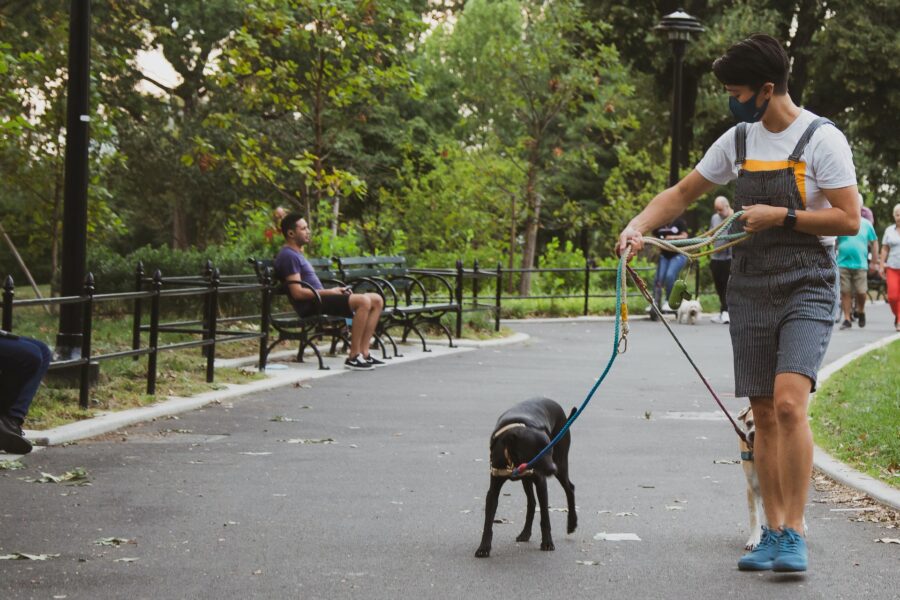Health
Study: Dog-walking, supermarket deliveries increase risks of Covid-19 infection

WHAT YOU NEED TO KNOW:
- A Spanish study suggests that living with a dog and getting groceries delivered to your home are the riskiest activities for getting infected with Covid-19.
- Dogs may catch the virus from touching unclean surfaces and transporting it around.
- Scientists also warned dog owners about hygiene during and after taking their pet dogs outside.
A Spanish study discovered that walking dogs may drive coronavirus transmission by 78 percent and accepting groceries at your home could double the risk.
Researchers from the University of Granada and the Andalusian School of Public Health in Spain assessed how various activities are related to the likelihood of people getting the virus found that getting supermarket deliveries and dog-walking are the riskiest.
They suggested that dogs could be catching the virus in the same way people do and spreading it by touching contaminated surfaces in public and transporting it to their owners. This is why the study also cautioned dog owners about hygiene when taking their pets outdoors.
How animals actually spread the virus remains unclear but there have been confirmed cases in cats and dogs getting infected from bats via another species. However, animals do not appear to get sick.
The study which was published in the journal Environmental Research entailed asking 2,086 people in Spain between ages 40 and 54 years old about what they did during the pandemic and whether they had caught the virus. The scientists then compared the results as to which activities were most at risk.
Findings showed that about 98 people representing 4.7 percent of the group caught Covid at some point. Activities that were connected to an increased risk of getting infected include supermarket deliveries at home, at 94 percent, which is even more dangerous than going to the shop itself.
Other risky activities included working at the office showing risks by 76 percent, living with an infected person which boosted risks by 60 times and 78 percent raised risks when living with a dog which they took for walks.
‘The results of our research warn of increased contagion among dog-owners,’ said Professor Cristina Sánchez González.
However, she added that the possibility of diagnosis in dogs is extremely unlikely and outcomes have yet to be validated given the lack of resources to carry out the diagnosis of SARS-CoV-2 in humans. She said though that dogs may possibly spread the virus through their feces.
“In the midst of a pandemic and in the absence of an effective treatment or vaccine, preventive hygiene measures are the only salvation, and these measures should also be applied to dogs, which, according to our study, appear to directly or indirectly increase the risk of contracting the virus,” Professor González added.
Source: Daily Mail Online
